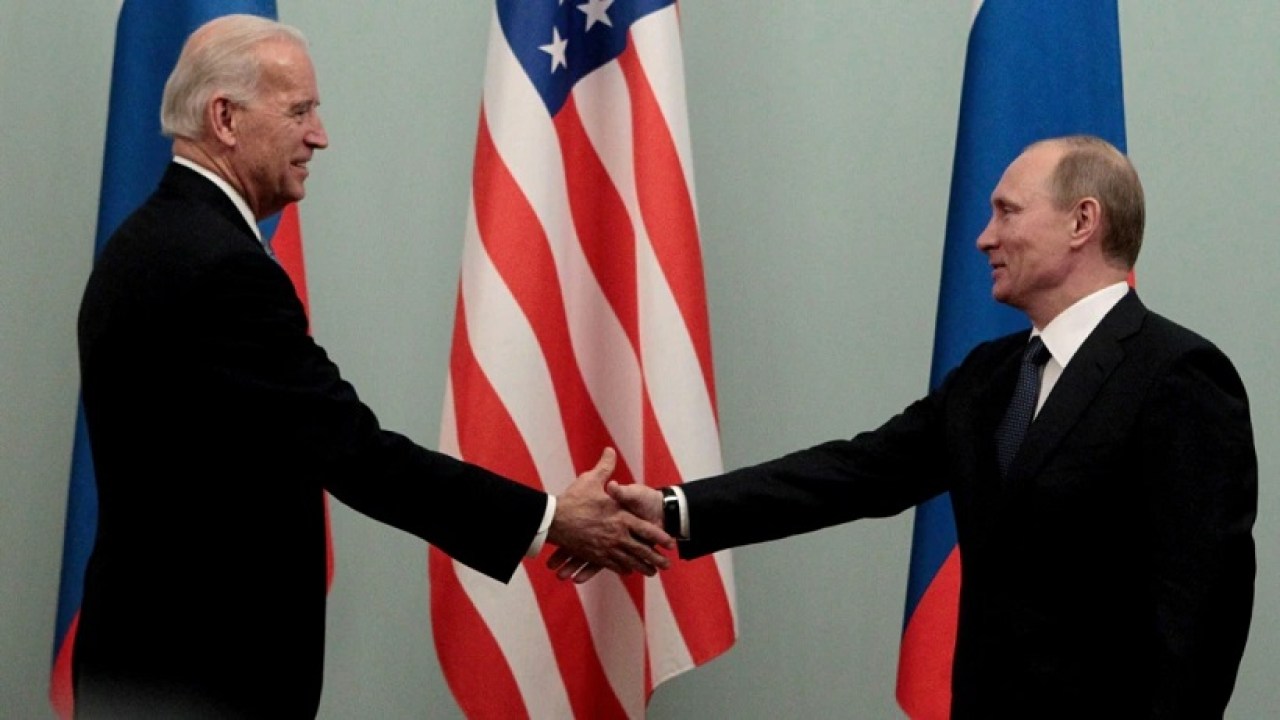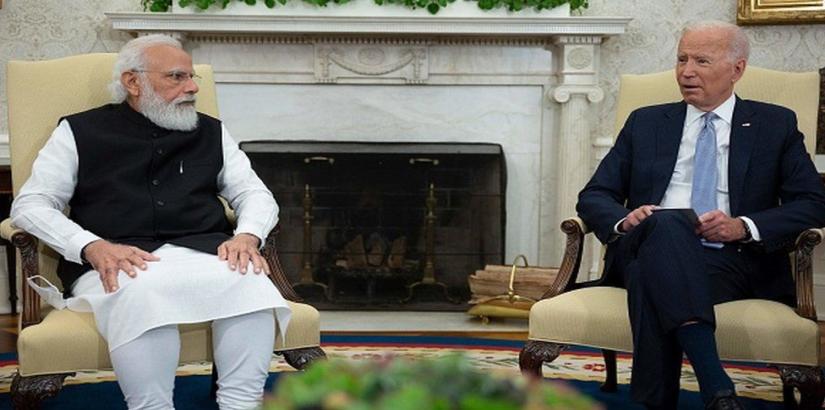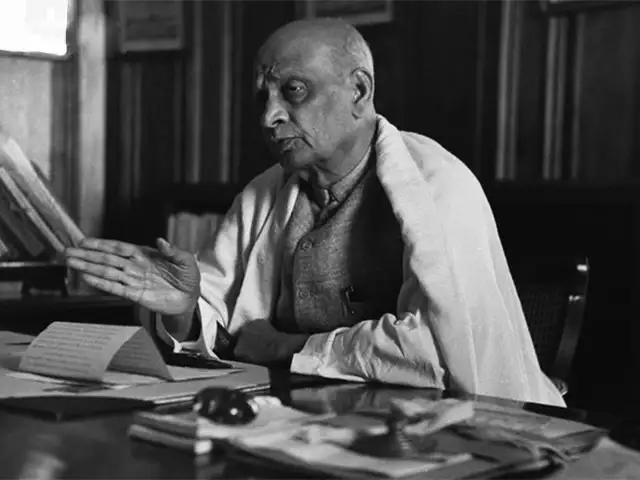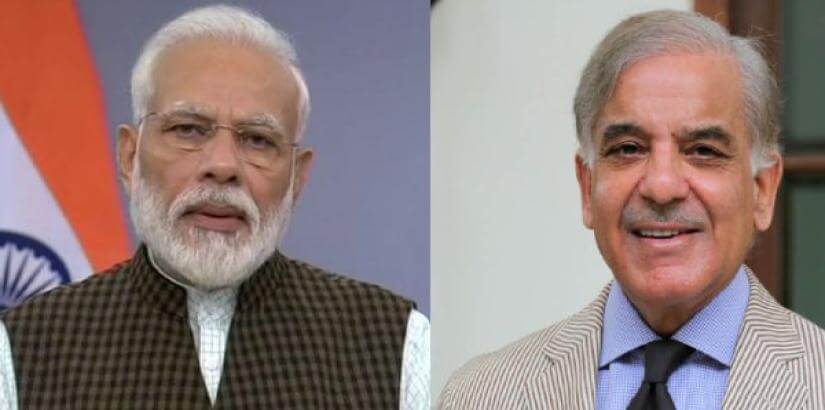Asad Mirza
The recent announcement by the White House sources that US President Joe Biden has proposed that he and his Russian counterpart Vladimir Putin hold a summit in a third country in the coming months, has increased hopes of a rapprochement between the two old rivals.
This personal invitation was extended during a telephonic conversation between the two leaders trying to address deep differences, including Russia’s recent troop build-up near Ukraine.
Biden during the call with Putin stressed his commitment to Ukraine’s sovereignty and territorial integrity, while expressing concern over a Russian troop build-up on Ukraine’s borders.
The White House said Biden also made clear that the US would defend its national interests in response to Russian actions including “cyber intrusions and election interference”.
The call took place as Secretary of State Antony Blinken was in Brussels to meet Ukrainian officials and North Atlantic Treaty Organization (NATO) allies.
NATO has called on Russia to end the military build-up. The Russian move has sparked concerns of a major escalation in the conflict between the two countries, which has simmered since the Kremlin invaded it in 2014.
Meanwhile, the Kremlin confirmed the two leaders discussed a possible summit, saying Biden “expressed interest in normalizing the state of affairs on the bilateral track.”
Russian maneuvers
The Russian build-up along Ukraine has been impossible to be ignored by the international community. In response there were reports of two US warships reportedly heading for the Black Sea and Russia’s Foreign Ministry warning them off “for their own good”. As the hostile rhetoric and military moves around Ukraine have intensified, Western politicians have begun fearing an open invasion and urging Putin to “de-escalate”.
In response Russia has refused to oblige. The Russian Defense Ministry insisted that its moves were in response to “threatening” NATO exercises in Europe. However, a rational analysis of the recent and past events leads one to surmise that it is all a part of the political brinkmanship, by both the Americans and the Russian establishment. And in this game Biden has blinked first, giving advantage to Putin.
The invitation for a summit contrasts to Biden’s earlier actions and statements and his overall political ideology, which observers describe as being built on the principles of American pre-eminence. This invitation comes just weeks after the US president agreed with an interviewer that the Russian leader was “a killer”. A comment that sparked international concern.
President Biden’s new move has started a new debate – whether it is disaster prevention or a mistaken concession – but in reality, now the risk of a major military action by Russia has certainly waned.
Russia’s recent ostentatious troop movement always looked like grandstanding by a country that has given up trying to be liked by and now wants the West to fear it instead.
When Vladimir Putin sent troops and hardware into eastern Ukraine seven years ago, those were secret operations that are still denied to this day. However, this time, Russia seems more intent on sending signals rather than soldiers.
Another angle to the whole issue is the recent reinforcements in eastern Ukraine by Kiev government and the recent Russian actions are seen to avert any move to retake areas controlled by Russian-backed militants, by Kiev.
One senior Kremlin official has warned that such military action would be “the beginning of the end of Ukraine”, whose government was children “playing with matches”.
Moreover, Russia has another excuse to intervene in the region: some half a million people in the self-proclaimed “People’s Republics” of Donetsk and Luhansk in eastern Ukraine have been issued with Russian passports sincefighting broke out in 2014. And it would be plausible for Russia to come to their rescue if these ‘republics’ faced any threat.
Russian message
However, one is led to infer that the real aim of troop amassing on the Ukrainian border is not the real intention. Instead the goal is somewhat different.
It seems that Russia is trying to avert the tough, new sanctions that the Biden administration is threatening in retaliation for Russia’s election meddling, hacking attacks and more.
Last week, the US president signed an order to introduce sanctions against Russia. In particular, the US prohibits its companies from buying Russian state bonds issued by the Central Bank, National Wealth Fund or the Finance Ministry after June 14, 2021. Washington also imposed sanctions against 16 organizations and 16 individuals allegedly involved in meddling in US elections. The sanctions also covered eight people and companies, connected to Crimea, including members of the regional government. Besides, the US expelled 10 diplomats working in the Russian Embassy in Washington. Which started a series of expulsions by Russia and Czech republic, as tit for tat.
This game of sanctions and offer to hold a summit simultaneously is perplexing for Moscow and international community, both. Moscow considers it strange to impose sanctions and simultaneously offer to deepen the dialogue on strategic stability.
Putin’s intentions may become clearer next week when he’s due to make his annual “state of the nation” address, a podium he’s often used for saber-rattling against the West.
But the call from Biden may have given him chance to pull back from this particular fight. The US has also decided to cancel sending two US warships to the Black Sea, a move that is seen as being conciliatory.
Kremlin spokesman Dmitry Peskov has said that Moscow will act out of the principle of reciprocity towards Washington and its sanctions. According to Peskov, the new sanctions will not facilitate the summit proposed by Biden.
In the end a lot depends on how the two leaders interact at the summit and what more conciliatory and mollifying steps are taken by the two to deescalate the regional tension and work towards normalizing the bilateral relationship. However, chances of a rapprochement seem too far-fetched, as each rival wants to lead the new world order. IANS







